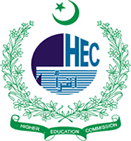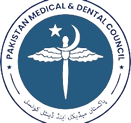Ethics Training in Medical Education: Adapting to the Cultural Context of Pakistan
Ethical Training in Medical Education
Abstract
Introduction: Ethics is foundational in medical education, yet its teaching varies globally based on cultural and institutional contexts. In Pakistan, challenges like untrained faculty, limited resources, and strong socio-religious influences affect ethics training.
Objective: To evaluate the perceptions regarding ethics training effectiveness among students and faculty and to assess the adaptability of ethics training to the cultural context of Pakistan.
Methods: A cross-sectional survey was conducted involving 200 students and 40 faculty members, using a structured questionnaire that covered demographics, ethics knowledge, attitudes, satisfaction, effectiveness, and cultural alignment. Data analysis included descriptive statistics, chi-square tests, and t-tests to compare responses across different demographic and professional groups.
Results: The study revealed significant differences in ethics knowledge scores between students (mean = 79.55, SD = 11.654) and faculty (mean = 82.53, SD = 9.315), with a p-value of 0.045 indicating statistical significance. Attitudes towards ethics training were notably polarized among faculty members, with 52.5% strongly disagreeing and 47.5% strongly agreeing with the effectiveness of current programs. Satisfaction levels varied, with 66.5% of students reporting neutral attitudes compared to more varied responses from faculty. Additionally, perceptions of cultural alignment showed major discrepancies, particularly among faculty (50% strongly disagree and 50% strongly agree), highlighting a divide in views on cultural appropriateness.
Conclusion: Our findings highlight an immediate need to evolve the curriculum beyond its theoretical foundations to include practical implementations that are culturally sensitive. Addressing these gaps will significantly enhance the effectiveness of ethics training, making it more meaningful and engaging for all participants.



